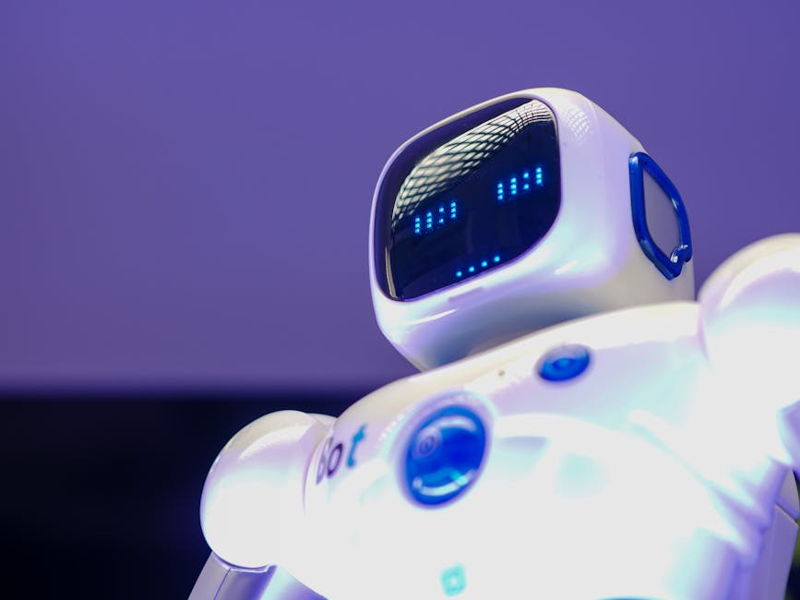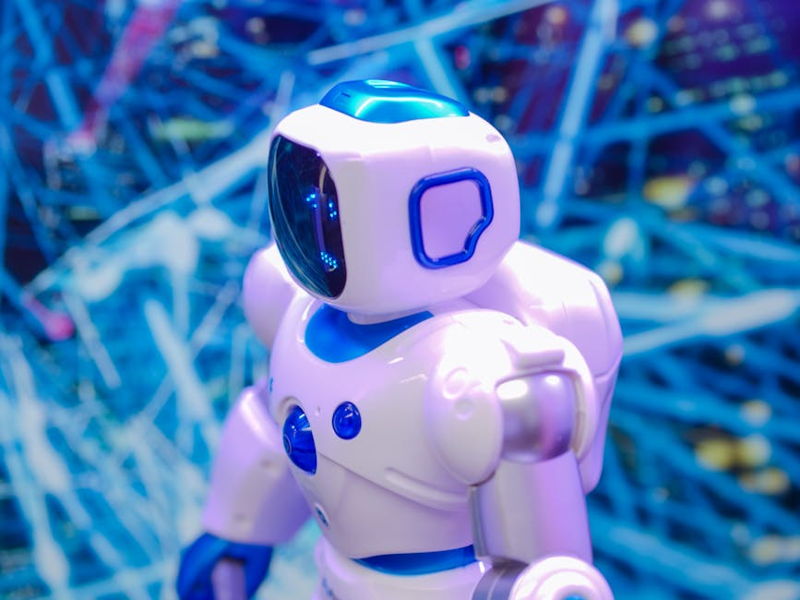Introduction to AI Agents: What Are They & How Do They Work?
What if AI Agents could change your everyday life? Imagine waking up to a personalized schedule, tailored by smart systems that perfectly know your morning routine. The topic of AI Agents holds weight today, touching everything from the gadgets in your kitchen or living room to the way hospitals treat patients. Today, you'll discover the nuts and bolts of AI Agents, their backstory, parts, and practical uses, while seeing how they're already reshaping the world around us.
With these systems becoming woven into everyday life, knowing how they fit into our lives isn’t just interesting… It’s necessary. Their ability to learn, change, and sometimes even surprise us makes their influence hard to ignore.
Table of Contents
What Are AI Agents?
AI Agents are software driven entities that act on their own, making choices based on the situation and the goals they've been given. Think of them as assistants that don't just keep your calendar straight, they learn what you like, anticipate your needs, and adapt as life throws curveballs. One headline example: self driving cars that can read the road, react to hazards, and, in the long run, might make commutes safer and smoother for everyone.
Here's a simple way to picture how AI Agents work: imagine a thermostat. It senses room temperature, decides if it needs to warm or cool things down, and adjusts to keep things comfortable. Now, take that idea and stretch it to handle much more involved jobs. AI Agents can often handle tasks that require learning from trial and error. As these systems get smarter, don't be surprised if you see them popping up in places you never expected.
A Brief History
The spark for AI Agents was lit back in the 1950s, with early thinkers like Alan Turing and Marvin Minsky pondering what computers could become. At first, these agents were basic, but over time they picked up stea, growing into systems that don’t just follow orders but adapt and learn from their own experiences. Machine learning gave them a real boost. Now, AI Agents can improve themselves, getting better at their jobs with every bit of new data.
With each leap forward, the field welcomes new ideas and faces, such as Andrew Ng and Fei Fei Li, who push the boundaries even further. Today, these agents are popping up in places from hospital wards to trading floors. This makes us wonder what’s next… The possibilities seem to stretch as far as our imagination.

Key Components
At the heart of every AI Agent are a few essentials: the algorithms that help them learn, the storage for all that data, and the sensors that keep tabs on the world. Put together, these pieces empower AI Agents to make choices and act on their own. As Dr. David Ferrucci notes, the trick is building systems that learn from what happens and can roll with the punches. That’s exactly the work under way today, refining these components so agents can take on even tougher tasks.
To see how this all fits together, look at machine learning. It helps agents spot patterns and sharpen their skills over time. In a self driving car, for instance, quick thinking is everything. The car’s algorithms need to sift through a flood of real time data and make decisions in a split second. The interplay of these elements is what turns an ordinary program into something that can handle the twists and turns of real life.
Types of AI Agents
There’s more than one flavor of AI Agent out there. Some, like Autonomous Agents, can run without human help. Others, called Intelligent Systems, learn as they go. You know the household names, Siri and Alexa, each able to answer questions and juggle tasks. Then there are Swarm Agents, where a group of simple agents team up for a shared goal. Search and rescue is just one setting where this teamwork shines, as groups of agents spread out and hunt together for missing people.
Each type has its own strengths and some fine print. Autonomous Agents thrive behind the wheel of self driving cars, while Intelligent Systems dig into healthcare data, spotting trends no doctor could see alone. The field is wide open, and you never know where the next breakthrough will come from. The more we explore, the more uses we uncover.
How AI Agents Work
AI Agents improve over time by learning from data, a process called machine learning. The journey usually unfolds like this: the agent gathers information about its environment. It runs that data through algorithms to draw conclusions. Then, it takes action based on what it finds. Picture a self driving car again: sensors relay details about the road, the onboard system weighs all the data, and then the car steers or brakes as needed. It’s a dance between observation and action, repeating endlessly as the world changes.
Let's look at a concrete case, a smart home system. This agent listens in on temperature and lighting through its sensors, feeds that information into its learning system, and tweaks settings to suit your comfort. All of this happens on the fly, no need for anyone to push a button. Life gets easier, and you barely have to think about what’s going on behind the scenes.
Common Applications
AI Agents are showing up in some surprising places. In healthcare, they sift through patient records to help doctors diagnose tricky illnesses. In finance, they keep an eye out for shady activity or help investors make choices that could boost their returns. The more these agents learn, the more ground they cover. It’s not hard to imagine a future where AI touches nearly every corner of business and daily life.
Customer service is another area seeing real change. Instead of waiting on hold, people can chat with a friendly, always on virtual assistant that helps solve issues or answer questions. As these agents get smarter, expect customer interactions to get more efficient, and maybe even a little more pleasant.
Scale Your Content Effortlessly
Automated article generation for unstoppable SEO growth. Wordze helps you publish faster, smarter, and more often.
Benefits and Limitations
AI Agents can make life smoother and more personal. They take over repetitive chores, freeing people up for work that needs a human touch. But there are trade offs: ethical questions and worries about job shifts can’t be ignored. As these agents spread, it’s essential to keep an eye on the downsides and strive for balanced solutions. Researchers are hard at work refining how these systems learn and act, aiming to clear these hurdles.
Every benefit comes with its own set of challenges. While AI can unlock new possibilities in every thing from healthcare to finance, it also forces us to rethink how we handle technology’s growing role. The conversation doesn’t end here. Let’s take a look at the obstacles facing AI Agent development and how we might tackle them head on.
Challenges in Developing AI Agents
Getting AI Agents to explain them selves is one big hurdle. As these systems grow in complexity, clarity matters more than ever. People want to know why agents make the choices they do. Dr. Andrew Ng offers a simple goal: agents should be able to give plain answers for their actions. Trust depends on this kind of openness, and it’s not something developers can brush aside.
Data quality presents another mountain to climb. If the information feeding an agent is flawed, the results will be too. In tricky fields like healthcare, where every detail counts, making sure agents are trained on reliable, relevant data takes real effort. Meeting these challenges head on is how we'll unlock the full potential of AI Agents. Now, let’s dig into the ethical side and how smart regulation can set the right guardrails.

Ethical Considerations
AI Agents don’t just change how we live. They raise important ethical questions. Privacy tops the list: these agents can gather and analyze personal details, sometimes more than we realize. Then there is accountability, right? When an agent makes a call that impacts lives, who answers for the outcome? The stakes are high, and those building these systems need to keep responsibility front and center. Many organizations and governments are stepping in with rules and guidelines to help keep things on track.
Readers have a role to play, too. Staying informed about the upsides and risks of AI helps push for designs that put people first. As these agents grow more capable, keeping ethics in the conversation ensures technology serves the public good. The road ahead may be uncharted, but it's one we all travel together.
Final Words
AI Agents are already making waves in everyday life, from stream lining medical care to powering tomorrow’s financial tools. Understanding where they come from, how they work, and where they might be headed is more important than ever. The promise is real, but so are the challenges. If we want this technology to lift us all, we need to shape it with care and foresight.
So, what’s next in your opinion? Feel free to leave your thoughts in the comments section below. The only sure thing is that change keeps coming, and how we steer it is up to us. Where do you see AI Agents making the biggest difference, and how can we ensure that future benefits everyone?
Frequently Asked Questions About AI Agents
What are AI Agents exactly?
AI Agents are software driven entities that act on their own, making choices based on the situation and the goals they have been given.
How do AI Agents learn?
AI Agents improve over time by learning from data, a process called machinelearning.
What are the benefits of AI Agents?
AI Agents can make life smoother and more personal, taking over repetitive chores and freeing people up for work that really needs a human touch.
What are the challenges in building AI Agents?
Getting AI Agents to explain them selves and ensuring data quality are two significant challenges in building AI Agents.
What are the ethical considerations?
AI Agents raise important ethical questions, including privacy and accountability, and require careful consideration to ensure they serve the public good.


